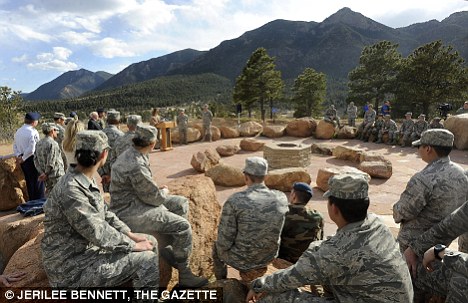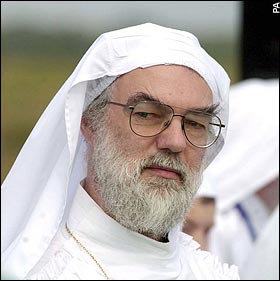From here:
In his new job as head chaplain in the military, Brig.-Gen. John Fletcher will be overseeing the religious needs of Canada’s troops, shoring up what the Defence Department calls its chaplaincy’s “inclusive, welcoming culture.”
As an openly gay member of the military and Anglican priest for more than two decades, it’s an environment Fletcher has benefitted from firsthand.
His recent appointment is in sharp contrast to past military policy, which allowed discrimination against gays and lesbians. Fletcher said he came out not long after a landmark court decision struck down the rule in 1992, alleviating his fears about what could happen to his career if he did come out.
Fletcher acknowledges that some may find it odd, or even scandalous, that he is a career military man, a priest and homosexual.
“I equally understand that some people will be excited and encouraged by the openness of my own church, to allow me to exercise this ministry and certainly encouraged that I’m free to work within a Canadian military that simply doesn’t discriminate on (the basis of) these things,” he said.
What strikes me as odd about this article is not the presence of a homosexual Anglican priest – something whose shock value is now rather less than the increasingly rare instance of encountering a heterosexual Anglican priest – but that the Defence Department is busy cultivating a chaplaincy that emphasises an “inclusive, welcoming culture.”
I was labouring under the misapprehension that the job of the military was to train men to kill other men in defence of their country; the chaplain’s job, I thought, was to try and prepare soldiers for a premature introduction to their Maker by encouraging them to get to know him beforehand.
This brief description of chaplains in action strikes me as more convincing than today’s warm, mushy, welcoming culture of inclusion version:
I frequently noted in the field, how chaplains – to a man – sought out front line action. And I assume that was because, as one put it, at the time: ‘There is where the fighting man needs God most – and that’s where some of them know him for the first time. – U.S.M.C. Commandant A.A. Vandegrift, 1945



